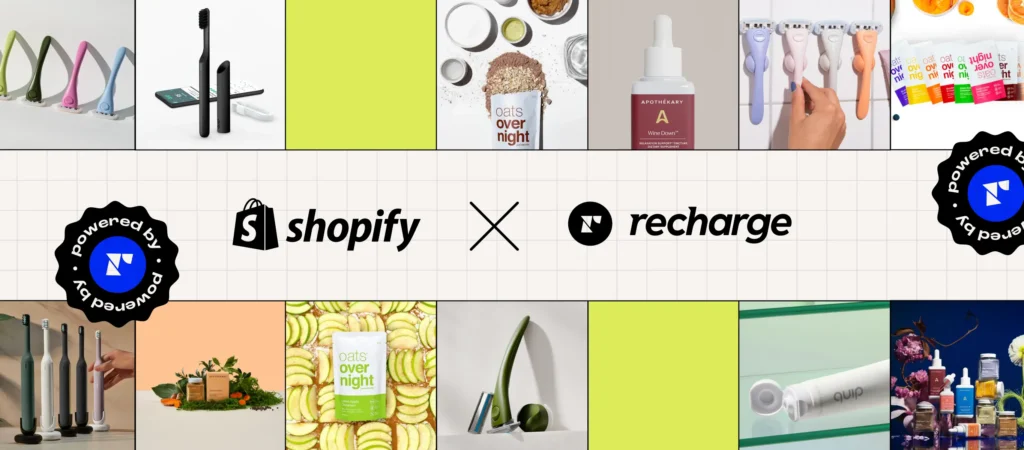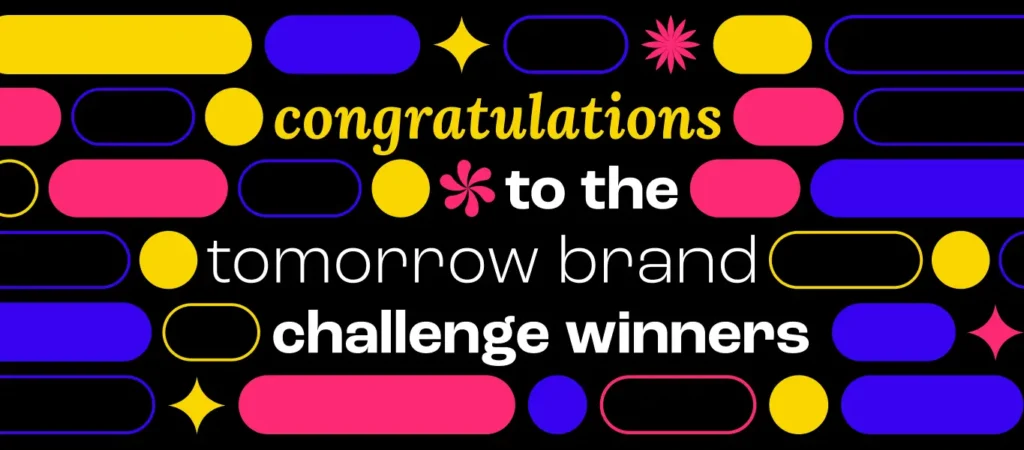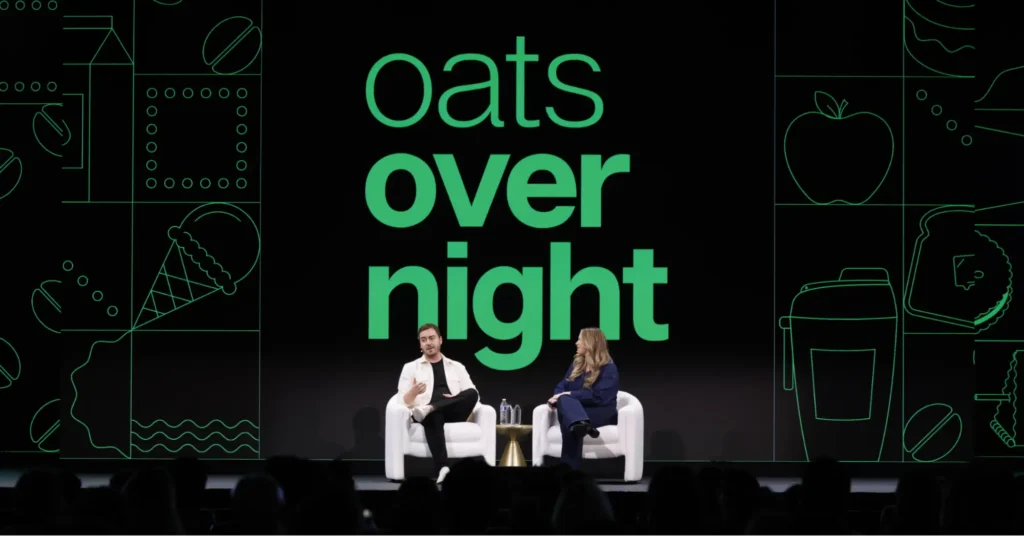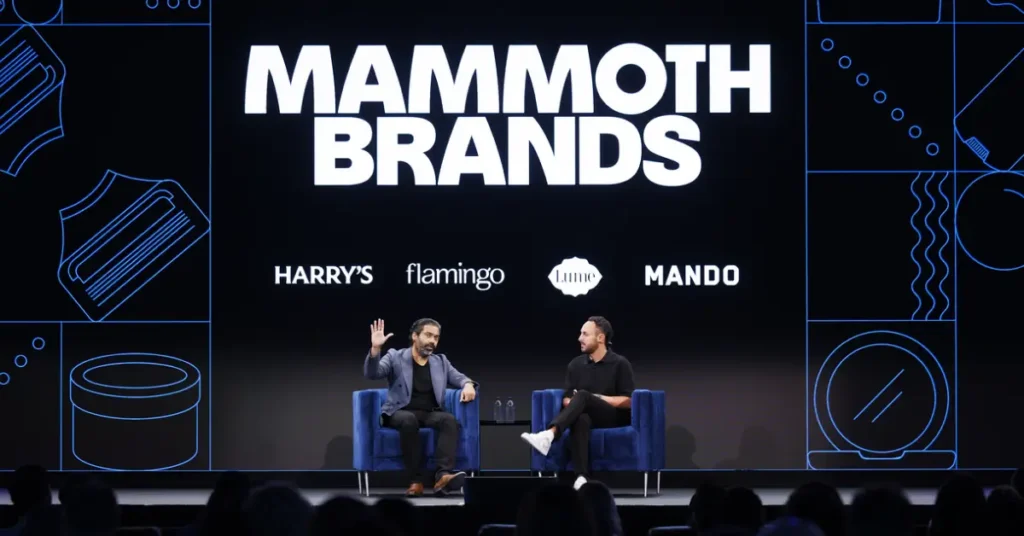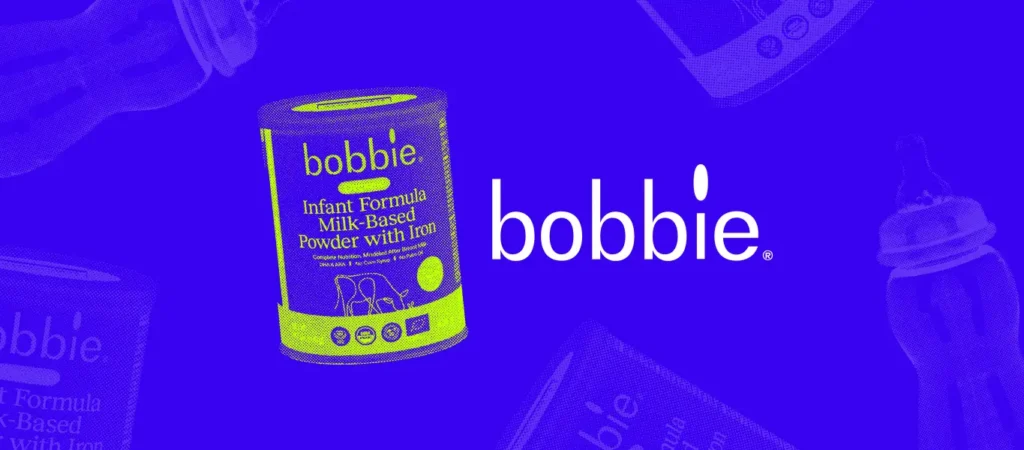Dedicated to sustainability: Ecommerce merchants who showcase their purpose
Published April 2022
Published Apr 2022
Updated April 2022
Updated Apr 2022
5 min read
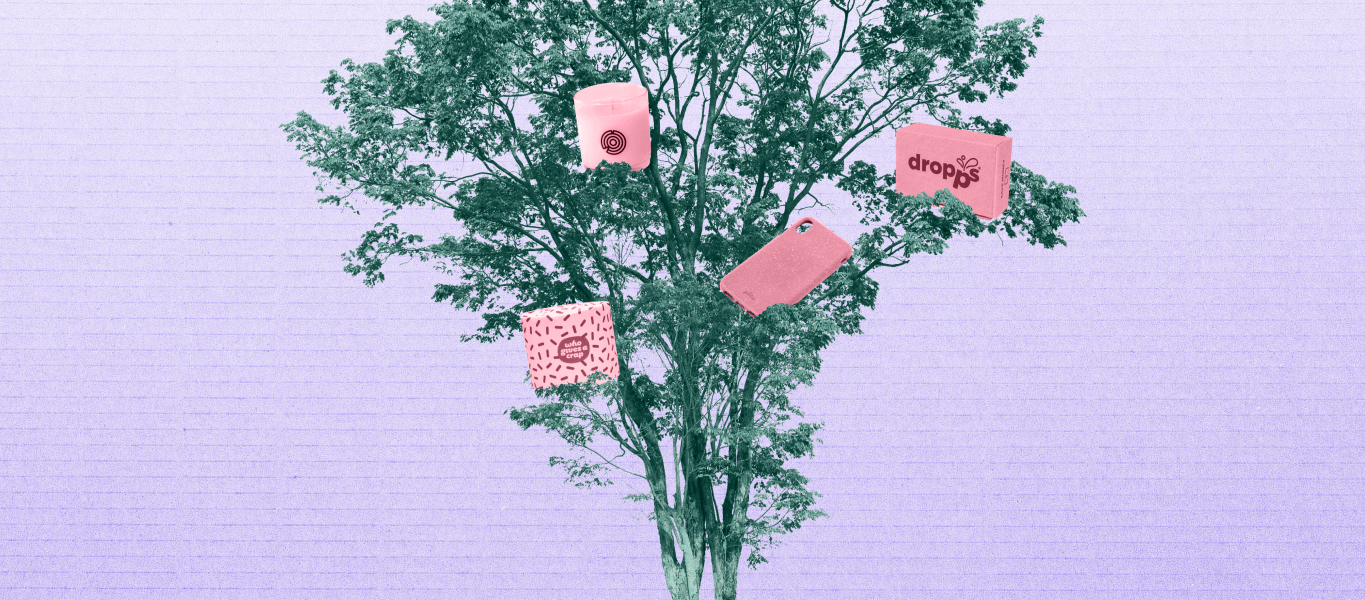
AI Summary
Sustainability is not just a buzzword, and it’s not just about creating environmentally friendly products. 80% of consumers feel that it’s important for companies to design environmentally friendly products, making it imperative that ecommerce merchants evolve to meet their customers where they are with a mission that speaks to what they care about.
Sustainability is not just a buzzword, and it’s not just about creating environmentally friendly products.
80% of consumers feel that it’s important for companies to design environmentally friendly products, making it imperative that ecommerce merchants evolve to meet their customers where they are with a mission that speaks to what they care about. According to Forbes, a corporate strategy focusing on sustainable practices can add brand value, meet consumer demands, increase efficiency, attract valuable talent, and create new opportunities.
As Earth Day fast approaches, we wanted to highlight four Recharge merchants with missions of sustainability, showcasing how they not only talk the talk, but walk the walk.
How Keap Candles keeps up with their sustainable mission
Keap Candles, a zero-waste candle company based out of New York, started with a philosophical question: “In an always-on world, how can we reconnect with ourselves and restore our balance with nature?”
You don’t have to search hard for Keap’s commitment to the environment on their website. In fact, on just about every page, they explain the purpose behind what they do. Whether that’s in their zero-waste initiatives, their work toward creating a 100% regenerative supply chain, environmental advocacy through the 1% for the Planet and Climate Collaborative, or their commitment to connecting customers with nature, the team at Keap Candles puts sustainability at the forefront.
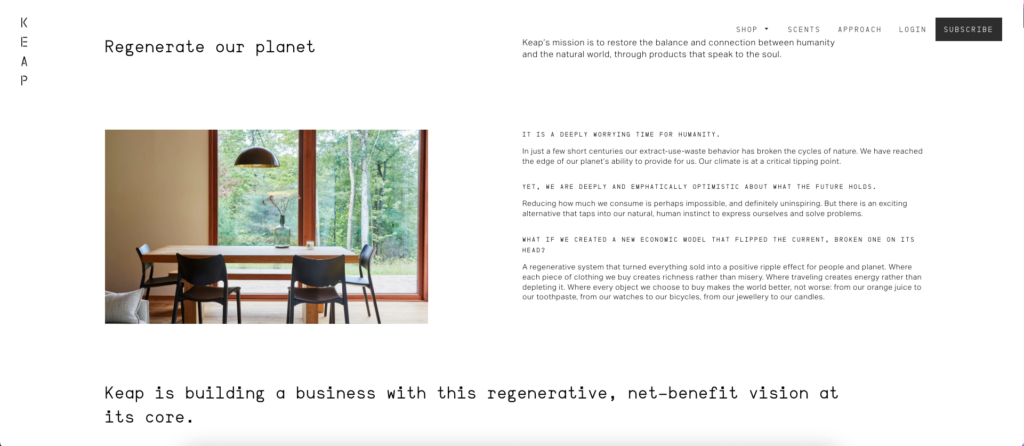
Their products and delivery to customers are also built with sustainability at the heart. They utilize innovative materials, making their sustainable packaging 100% plastic-free, reducing overall waste.
The candles themselves use sustainable coconut wax for a clean and complete burn, and no adhesives are involved—so their labels and wicks can be easily removed, making the jars entirely reusable as well.
Who Gives a Crap gives a crap about people & the planet
Who Gives a Crap started when they discovered that over 2 billion people didn’t have access to a toilet bowl. So in July 2012, co-founders Simon, Jehan, and Danny launched a crowdfunding campaign to raise enough pre-orders to start production on their product.
Less than a year later, they delivered their first product and committed to 50% of their profits going toward improving sanitation in the developing world.
With such a dedication to humanitarian efforts globally, Who Gives a Crap also committed to creating products that weren’t hurting the environment in which we live. They created their bamboo toilet paper line, which requires almost 90% less land per finished sheet to produce.
Their recycled toilet paper is made from post-consumer waste paper, predominantly from schools and offices. They also offer free carbon neutral shipping on orders over $25.
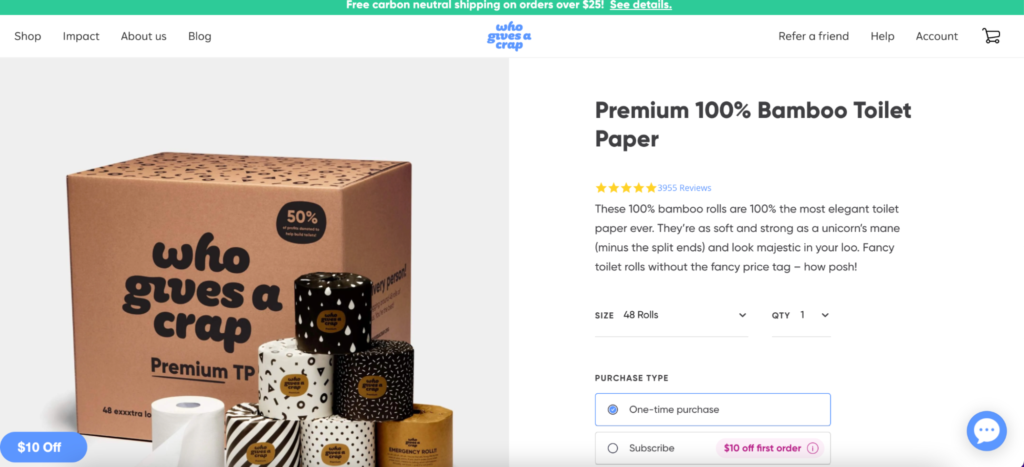
Who Gives a Crap even focus heavily on sustainability and green practices on their blog, “Talking Crap,” which focuses on things like, “A few ways to be an eco-friendly traveler,” or “Going zero waste: 7 ways to reuse your food scraps.”
Dropps drops the packaging problem in return for carbon neutrality
Dropps, creator of the first laundry detergent pod, came alive due to a need for gentle detergent that wouldn’t strip delicate materials. Since its inception, Dropps has been committed to creating laundry detergent that would be tough on dirt, but gentle on clothes and the planet.
They employ numerous environmentally friendly tactics: Creating sustainable products, no animal-testing, carbon neutral shipping, and using low-waste packaging. Traditional laundry detergent comes in large plastic jugs, and their pod-like counterparts come in plastic tubs or pouches.
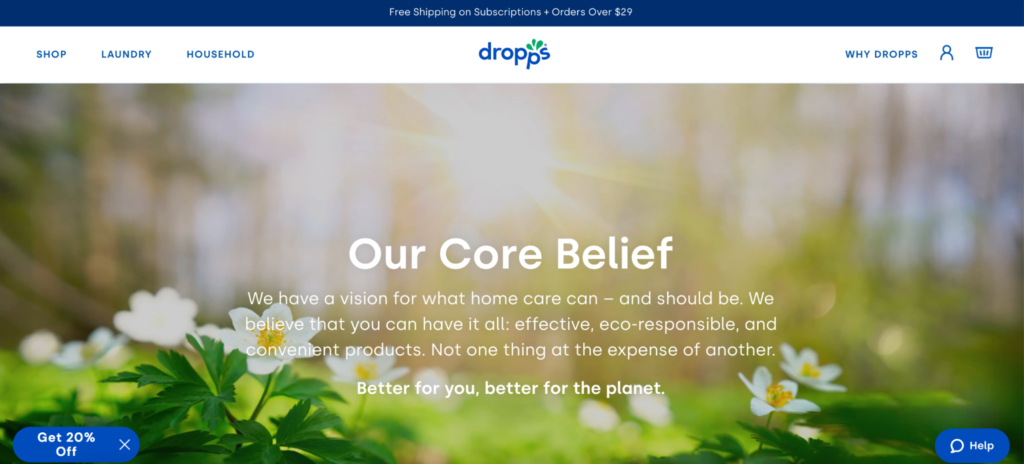
Dropps wanted to reimagine how their laundry pods were sent, so they ship direct to their customers in a recyclable, compostable, and repulpable box. They even took it a step further by utilizing corrugated cardboard suppliers who are certified by the Sustainable Forestry Initiative, paper tape and recycling compatible adhesive (RCA), as well as recyclable and compostable shipping labels.
Pela peels back the layers on how to stay sustainable
Compostable and cell phones are two things that don’t often go together. But Pela, creator of the world’s first compostable phone case, decided that our planet deserved better.
Pela started with “a big, hairy audacious goal”—a BHAG—they want to create a waste-free future. In 2020, Pela published the Pela Lifecycle Assessment Report, updating and adding new calculations for their CO2 emissions, water, and waste impacts. In that report, it was illustrated that Pela uses 30% less carbon emissions, 34% less water usage, and a whopping 80% less waste production.
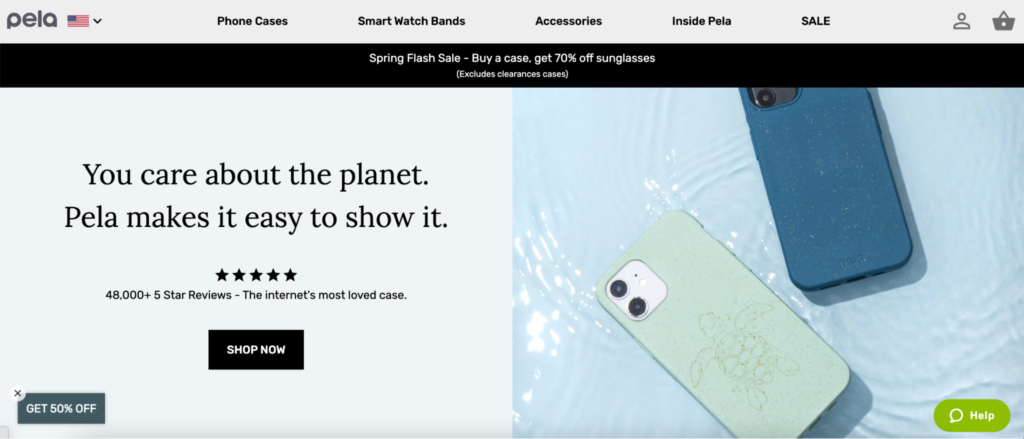
Pela’s mission and purpose helps offset the environmental impact of over 1 billion plastic phone cases that are sold each year. And every year, over 60,000 of those phone cases are thrown away because they no longer fit the current model phones. Pela continues to educate consumers that there are better alternatives out there that will further help the planet.
Taking small steps to reduce your carbon footprint
We know that not all business models can present fully sustainable options, whether due to product type, manufacturing processes, shipping constraints, or other external factors. But the world and technology is constantly evolving to support various businesses on their missions to become more eco-friendly and reduce energy waste.
Using brands like Keap Candles, Who Gives a Crap, Dropps, and Pela as inspiration, find small sustainable avenues to carve out for their business. Building a more sustainable future helps us all in the long-run, for our planet, future generations, your conscious consumers, and future talent you’re looking to attract.
Categories

